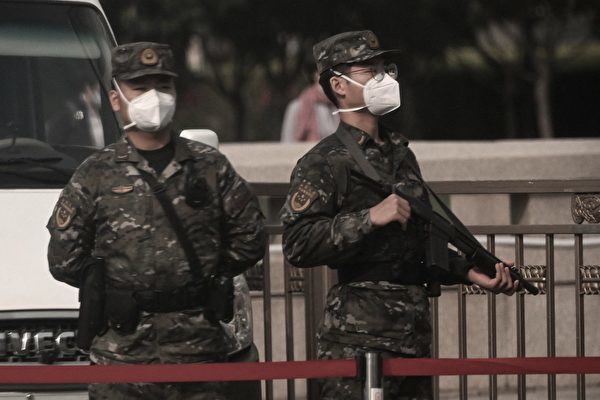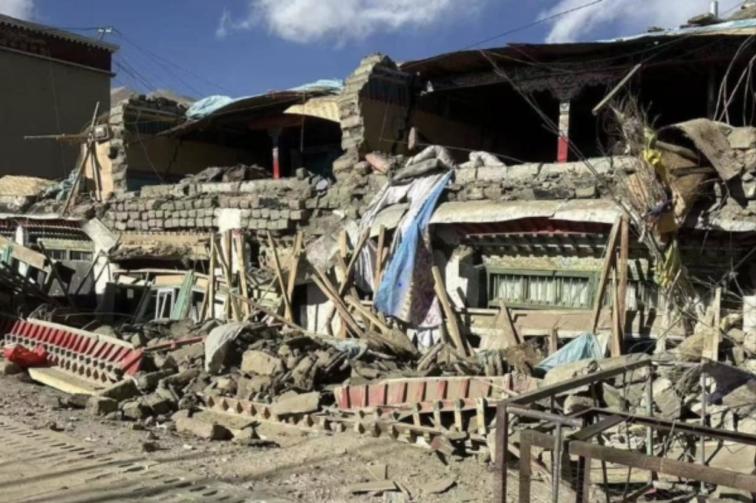Photo Caption: Seoul, South Korea - January 12, 2017. The Samsung flag flies outside the company headquarters in Seoul, South Korea. (Photo by Chung Sung-Jun/Getty Images)
[People News] On the night of December 3 last year, South Korean President Yoon Suk-yeol suddenly announced the imposition of martial law nationwide. About six hours later, following a parliamentary vote deeming the martial law illegal, it was lifted. On December 7, Yoon delivered a speech apologizing to the public for declaring emergency martial law. Since then, South Korea's opposition-controlled parliament has repeatedly called for an investigation into Yoon. On January 19, Yoon was formally arrested on charges of "leading an attempted rebellion."
Yoon has not accepted the accusations. While in detention, he continued to defend his actions, stating that his declaration of martial law was meant to prevent a collapse of South Korea’s constitutional order amidst political chaos and to restore normal governance. Yoon vowed to use the judicial process to clarify the purpose and legitimacy of his actions and to correct any misconceptions.
On January 20, South Korea’s Corruption Investigation Office for High-Ranking Officials (CIO) announced that Yoon had repeatedly refused to appear for questioning. The CIO is actively considering issuing a warrant to bring him in for interrogation.
Amid this political turmoil, a shocking report emerged from South Korean media outlet Sky Daily. According to U.S. intelligence sources, on December 3, the day martial law was declared, South Korean martial law forces conducted a joint operation with U.S. military personnel. They raided the training center of the Gyeonggi Province Suwon Election Commission and arrested 99 Chinese nationals suspected of interfering in elections. The detainees were handed over to the U.S. military, and by 2:00 a.m., all 99 Chinese Communist Party (CCP) spies were reportedly placed on buses and transferred via Pyeongtaek Port to a U.S. military base in Okinawa, Japan.
Local Japanese residents in Okinawa captured photographs of the USS Guam arriving at Naha Port at 7:00 p.m. on the same day. No training activities were scheduled that day. Okinawa’s Camp Hansen, which houses detention facilities for U.S. Marines, is believed to be where the CCP spies are being interrogated.
The Chinese spies detained at South Korea’s Election Commission training center were reportedly planning to tamper with A-WEB voting machines. However, joint intelligence operations by South Korea and the U.S. uncovered the plot in advance, leading to their arrest. During interrogation by U.S. forces, the Chinese spies reportedly admitted to all charges related to election interference. Interestingly, the Chinese government has remained silent about the U.S. detention and extradition of Chinese nationals, refraining from lodging any protests. This silence likely reflects Beijing’s desire to avoid confirming its involvement in meddling with South Korea’s parliamentary elections.
On January 5, the Chinese Embassy in South Korea issued a notice prohibiting Chinese citizens in South Korea from participating in protests. It is speculated that during this period, the Chinese government, through unofficial diplomatic channels, learned from U.S. military authorities that the detained Chinese nationals had confessed to all espionage charges.
The joint South Korea-U.S. operation was reportedly carried out with the involvement of the U.S. Department of Defense’s Defense Intelligence Agency (DIA). A U.S. intelligence official recently met with South Korean journalists on Saipan, a U.S. territory, and reiterated that the U.S. government plans to impose specific sanctions on China immediately after Donald Trump takes office.
After being informed of this situation by Trump’s team, Yoon Suk-yeol, amid rising tensions in Hannam-dong, declared, "The people must not be harmed," ordered his presidential security personnel to stand down, and voluntarily went to the Corruption Investigation Office for questioning. Yoon also stated, "A fraudulent electoral system requires international solidarity and cooperation to address the political forces that attempt and promote it," indirectly referencing the international cartel involved in election interference.
Interestingly, similar developments occurred in Ghana’s presidential election on December 8, 2024. Former President John Dramani Mahama, a challenger, won with 56% of the vote. Before the official results were announced, Ghana’s Vice President Mahamudu Bawumia, the incumbent candidate, conceded defeat. His early concession suggested he was aware that Chinese operatives planning to manipulate the election had been apprehended.
With Trump’s presidency expected to bring strong sanctions against the Chinese Communist Party (CCP) and the exposure of China’s covert manipulation of South Korea’s parliamentary elections, South Korea’s political landscape could undergo a dramatic transformation. This would likely alter the unfavorable circumstances faced by Yoon Suk-yeol, making his political comeback a high-probability event.
(Originally published by People News)











News magazine bootstrap themes!
I like this themes, fast loading and look profesional
Thank you Carlos!
You're welcome!
Please support me with give positive rating!
Yes Sure!